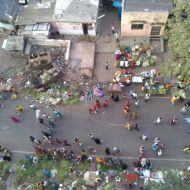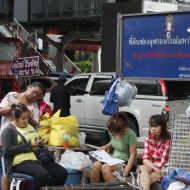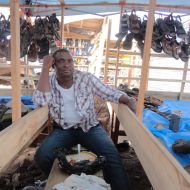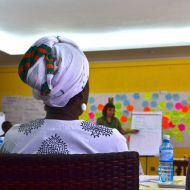Using Futures to Generate Innovations for the Informal City Dialogues
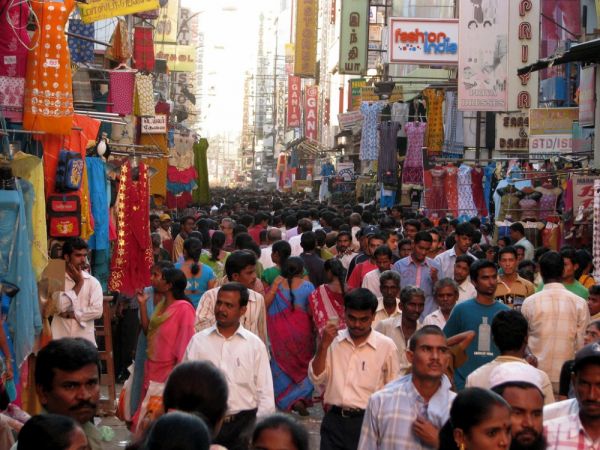
At Forum for the Future, we believe that it’s essential to understand the direction we’re headed – whether it be self-imposed or forced – and what barriers lie in the way. Photo credit: McKay Savage
Last week in Chennai, we asked a roomful of citizens, community leaders, researchers and government officials what they think their city will look like about thirty years from now. We heard a variety of answers, but perhaps most telling were from the wastepickers present. Essentially, they said they can’t (and don’t) think about decades in the future because they’re busy simply trying to survive day-to-day.
In the face of such uncertainty, how can we plan for the future?
We may not be able to plan for a single, specific future, but we can plan for futures. We can imagine what changes might take place in cities in the coming decades and use those scenarios as our guides. Through this visioning process – which unfolds using a special set of techniques called (you guessed it) futures – we can anticipate what tomorrow might hold so that we might start preparing today.
To celebrate its Centennial, The Rockefeller Foundation wanted to use these techniques to explore the questions, “What will cities in the Global South look like in 2040? How can they be more resilient and inclusive? What will happen to the informal city – the slums, the street vendors, the wastepickers, etc.?” From this, the Informal City Dialogues project was born.
The project seeks to catalyze conversations about informality in six cities: Accra, Bangkok, Chennai, Lima, Manila and Nairobi. (Read the complete goals of the project here). To do this, we’re using futures techniques to create multiple scenarios to better understand what could happen to the informal parts of each of these six cities in the future. In essence, we’re using different scenarios of the future to make better decisions now. Right now we’re in the visioning phase of the project. Next, we’ll work to stimulate innovations to make the informal city more resilient against what these alternate futures might bring. The best innovations will ultimately be awarded seed funding and brought to life.
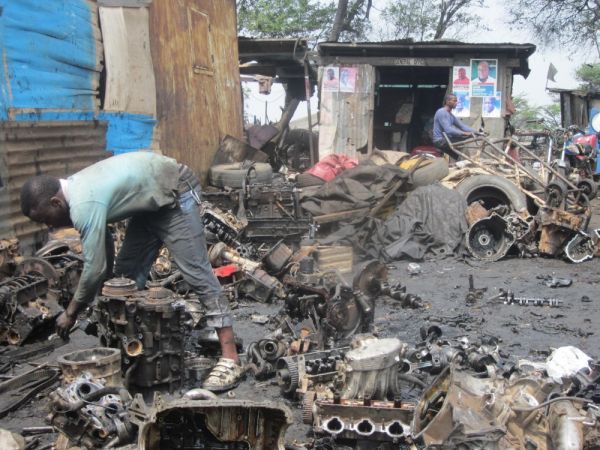
What will cities in the Global South look like in 2040? What will happen to the informal city – the slums, the street vendors, the wastepickers, etc.? Photo credit: Sharon Benzoni
Futures techniques are used in the multi-disciplinary field of futurology (a.k.a. futures thinking, strategic foresight, etc.), which is the study of postulating possible, probable and preferable futures. Envisioning scenarios such as we are is a common futures technique that refers to plausible, coherent and challenging descriptions of possible future worlds. They are not predictions. At Forum for the Future, we believe that in order to transform something as discrete as a single organization, or a system as expansive and intertwined as the informal city, it’s essential to understand the direction we’re headed – whether it be self-imposed or forced – and what barriers lie in the way.
Forum for the Future uses scenarios as tools to communicate the impacts of global trends, to help organizations or groups of people develop more resilient strategies, and to innovate sustainable products, services and processes. We use trends, visions and scenarios to help map a route to a sustainable – and, in this case, inclusive and resilient – future. The project briefing paper explores key dimensions of informality and drivers of change, and is a useful starting point for trend exploration and scenario development.
The conversations that result from the process alone are intrinsically valuable so developing scenarios is best done within a group, and these kinds of things are most effective when executed locally. Thus, we’ve partnered with local organizations in each city to identify a range of local stakeholders, from urban poor groups, the private sector, government, academics, women, youth and others to come together to develop a set of scenarios for the future of their city. Our local partners are the African Center for Economic Transformation (ACET) in Accra, Chulalongkorn University’s Department of Urban and Regional Planning in Bangkok, Transparent Chennai in Chennai, FORO Nacional Internacional in Lima, Ateneo de Manila University School of Government (ASoG) in Metro Manila, and the Institute of Economic Affairs (IEA-Kenya) in Nairobi.
The exact approach in each city is tailored to what will work best locally. Each city held a workshop to build scenarios in February and March. Many of our local partners have also hosted a series of pre-workshop stakeholder consultations with smaller groups. Some very creative methods for engagement have been employed – for example, ACET ran a video contest to capture the hopes and challenges perceived by the youth of that city; FORO did focus groups with marginalized stakeholder groups, including transvestites and children in slums; and IEA held an essay contest.
The scenarios developed in each city will be used in a second set of workshops in April and May to catalyze innovation ideas that could help these cities become more inclusive and resilient in the face of the changes and uncertainties identified in the scenarios. Innovation inspired by future scenarios is one of the ways we help groups of people design and implement practical methods to succeed in a range of future worlds. Ultimately, the best innovation proposals will each receive a maximum of $100,000 in seed funding, to be awarded by The Rockefeller Foundation this summer.
Stay tuned for upcoming blog posts dedicated solely to the outcomes of the scenarios part of the project, and later, the innovations. Please contact Project Director Helen Clarkson for any questions about the project process. At Forum for the Future, we’ve used our knowledge and expertise in futures and innovation with a variety of partners and projects, from FutureScapes (with Sony Europe) to the Sustainable Shipping Initiative (with Cargill, Unilever, Maersk, WWF and others). Let us know if you’re interested in hearing more about our work.
Jessica is a Sustainability Advisor with Forum for the Future. She is the Project Manager for the Informal City Dialogues.


